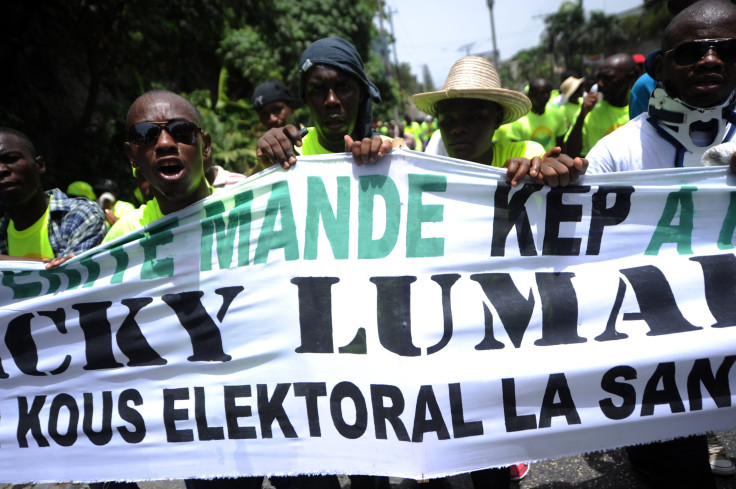Haiti Elections 2015: Violence Strikes Parliamentary Candidate Ahead Of Vote, Report Says

A candidate for Haiti’s Chamber of Deputies accused an opponent of a violent attack Monday as the country prepared to hold its long-delayed elections. Nearly 6 million Haitian citizens were registered to cast votes in the Aug. 9 proceedings to restore Haiti’s parliament after it disbanded in January.
Germain Fils Alexandre, a candidate for deputy of Petit-Goave, said fellow candidate Jacques Stevenson Thimoleon directed his followers to assault Alexandre as he campaigned in the town of Les Palmes, the Caribbean Media Corporation reported. Members of Alexandre’s entourage purportedly suffered injuries as assailants threw rocks at their vehicles.
“My team and I were attacked by Thimoleon and [his] supporters on the road of Palmes,” Alexandre said, according to the Caribbean Media Corporation. Alexandre’s party, Verite, purportedly called for an investigation into the attack.
Separately, Haiti’s National Identification Office, or ONI, called on registered voters to pick up their National Identification Card before the August 9 vote. Haiti has not held parliamentary elections in at least three years. The country’s previous parliament dissolved earlier this year after it failed to hold a new vote.
A second round of parliamentary elections was scheduled for October 25, with a possible third round slated for December 27. Haiti will also begin presidential election on October 25, with 70 candidates vying for the office as of this month.
Haiti’s Provisional Electoral Council asked the international community in July to contribute $31 million to help cover election costs, though a U.S. State Department official estimated the country would actually require $50 million, the Miami Herald reported. Critics questioned the government’s preparation for the election, as well as the legitimacy of presidential candidates who have not obtained a “décharge,” or parliamentary decree.
Haitian President Michel Martelly, who has ruled the country by decree since parliament dissolved in January, cannot seek another term in office. Jessica Faieta, director of the United Nations’ development program for Latin America and the Caribbean, said the upcoming elections were essential to Haiti’s future.
“The international community must stand by Haiti’s side,” Faieta said in July. “If Haiti succeeds, and it must, I believe we will have gone a long way towards a stable and prosperous future.”
© Copyright IBTimes 2024. All rights reserved.












